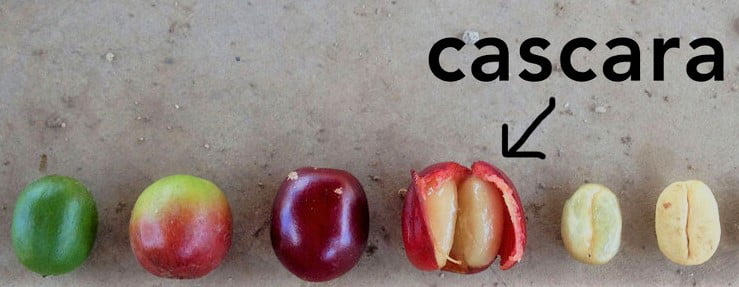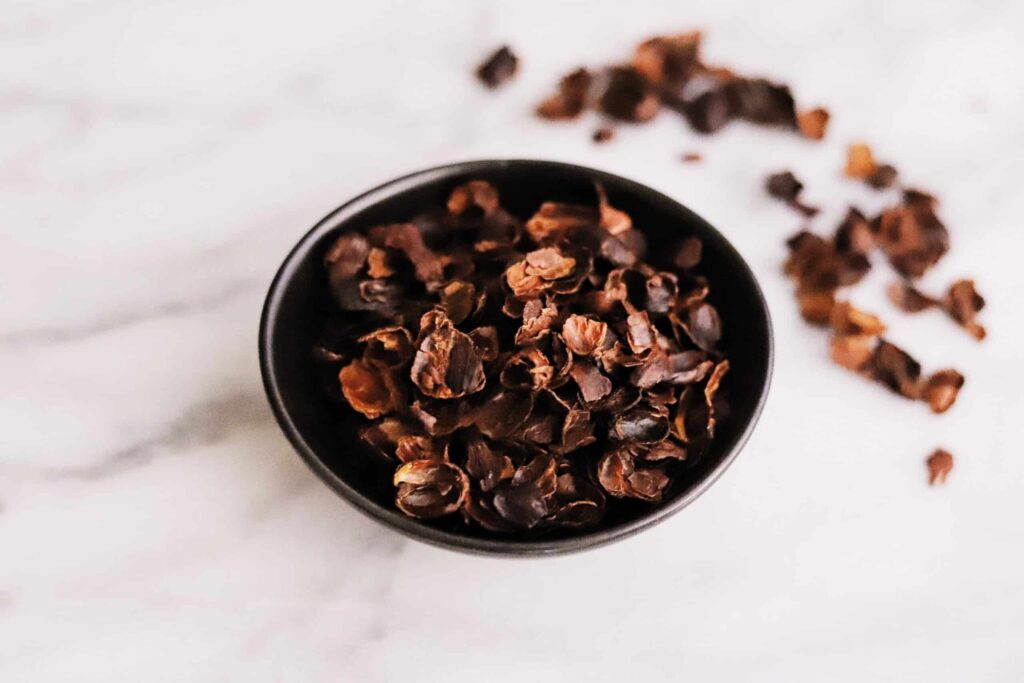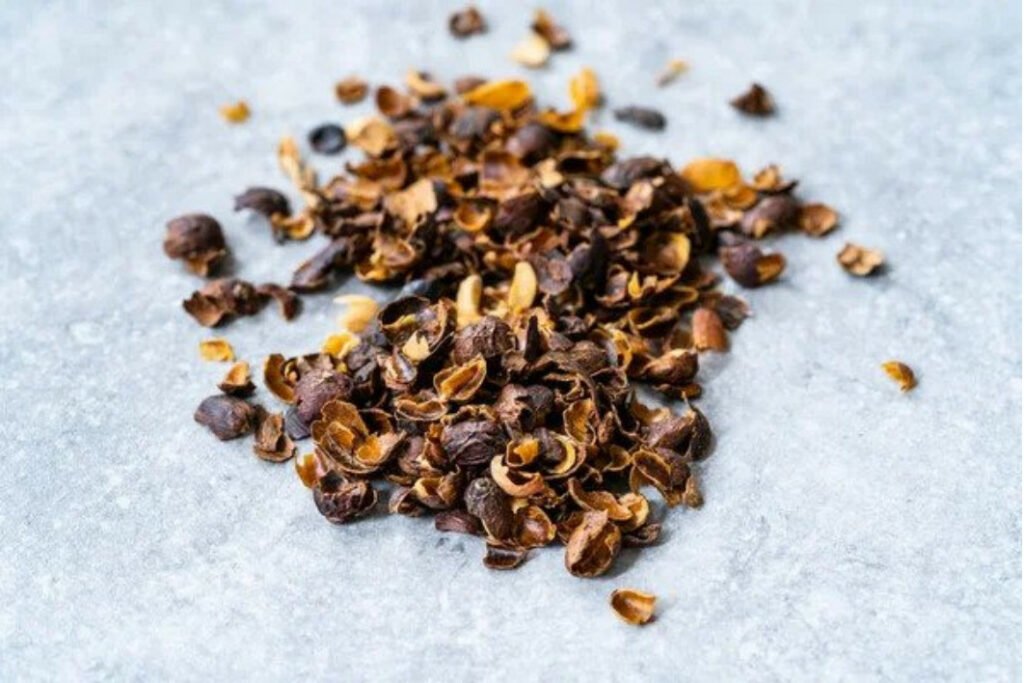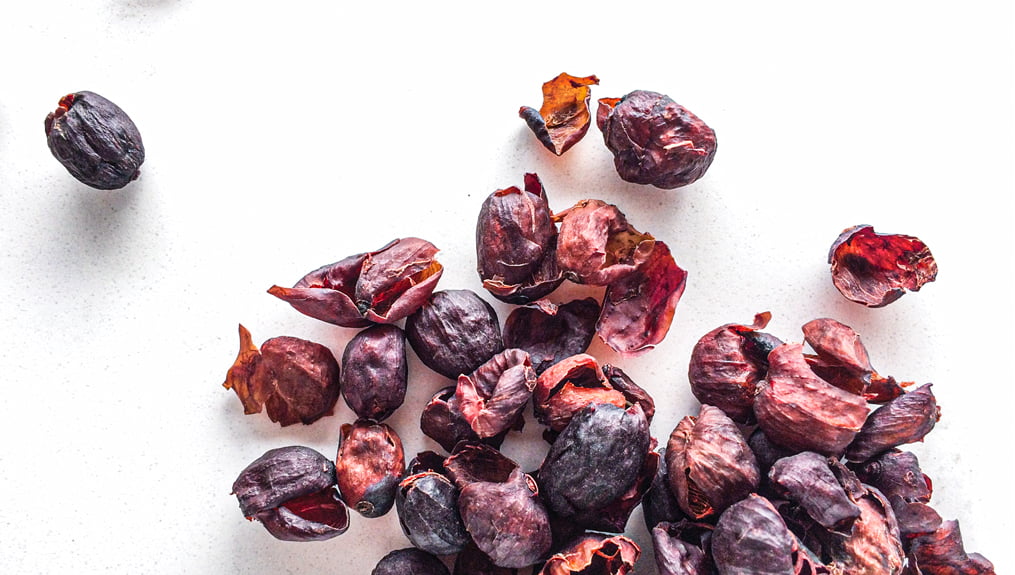Cascara, which comes from the Spanish word for “husk,” is made from the dried and processed outer layers of the coffee cherry. The coffee cherry is the fruit that surrounds the coffee bean, and it is usually discarded during the coffee production process. However, in recent years, cascara has been gaining popularity as a unique and flavorful alternative to traditional Cascara tea and coffee.
One of the main reasons for cascara’s growing popularity is its unique flavor profile. It has a sweet, fruity taste with notes of cherry, fig, and even a hint of dark chocolate. It also has a lower caffeine content than coffee, making it a great option for those who want a more relaxed and soothing drink. Another reason for cascara’s popularity is its sustainability. Using the coffee cherry as a source of tea not only reduces waste in the coffee production process, but it also allows farmers to generate an additional revenue stream.
There are different ways to brew cascara, but the most common method is to steep it like traditional tea. It can be brewed in a French press, a teapot, or even a coffee maker. The brewing time and temperature will depend on the desired strength and flavor of the drink.It is a unique and delicious drink that offers a new and exciting alternative to traditional tea and coffee. Its sustainability and unique flavor profile make it a great option for those looking to try something new and support the specialty coffee and tea industries.
What is Cascara Tea?
Cascara is not considered to be a coffee or tea, but rather a unique drink of its own. It is made from the dried skins of coffee cherries, which are collected after the seeds have been removed. The process of making cascara is eco-friendly, as it allows for the re-use of coffee cherries that would otherwise be discarded as waste. The resulting drink has a unique flavor profile and can be enjoyed on its own or as an ingredient in other beverages

Taste Of Cascara
It is made by steeping the dried husks of coffee cherries, which are the outer layer of the coffee fruit that surrounds the coffee bean. The husks are often discarded during the coffee processing process, but they contain a high amount of antioxidants, caffeine, and other beneficial compounds.It’s relatively new trend and is gaining popularity as a healthy alternative to traditional tea and coffee. It is also a sustainable option as it utilizes a byproduct of the coffee industry that would otherwise go to waste.
Does Cascara Tea Have Caffeine?
Cascara is a unique beverage that is made from the dried skin of coffee cherries. Unlike coffee, which is made from the beans of the coffee plant, cascara is made from the fruit of the coffee plant. Because of this, the caffeine content of cascara is significantly lower than that of coffee. According to a study by Square Mile Coffee, the caffeine content of cascara ranges from 111.4 mg/L to around 400-800 mg/L in coffee.
Despite its low caffeine content, cascara is a popular alternative to traditional tea and coffee. Its unique flavor profile and health benefits have made it a popular choice among coffee enthusiasts and tea lovers alike. Due to its unique origin and preparation, cascara cannot be classified as a true tea or coffee, but rather as a fruit tisane. So, it’s a perfect drink for those who want to enjoy the taste of coffee but with less caffeine.


The Origins of Cascara as a Tea
It has been a popular drink in Yemen and Ethiopia for centuries, and in these countries, it is often steeped with spices such as ginger, nutmeg, or cinnamon to make a fragrant drink known as hashara in Ethiopia or qisher in Yemen. In fact, in Yemen, cascara is consumed more often than coffee due to its lower cost. coffee growers in South America have also started to produce and export cascara. Aida Batlle, a fifth-generation coffee grower from El Salvador known for producing high-quality coffees, offers a cascara tea product available through Sweet Maria’s.
Cascara is gaining popularity in the United States as a new and unique drink option. It offers a different flavor profile than traditional coffee and has potential health benefits, such as being high in antioxidants and containing less caffeine than coffee. As more people discover the taste and benefits of cascara, it is likely to become a more common drink option in the United States.
How to Brew Cascara Tea
When brewing cascara, it’s important to note that the steeping time can vary depending on personal preference. Some people prefer a light and fruity flavor, while others prefer a stronger and more robust taste. A general rule of thumb is to steep the tea for 3-5 minutes for a light flavor and 5-7 minutes for a stronger flavor.
It’s also important to note that cascara can be brewed multiple times. This means that the same tea leaves can be used again and again, as long as they are not left in the water for too long. This can help to save on costs and reduce waste.
Brewing cascara is a fun and experimental process. It’s a great opportunity for cafes to experiment with different water-to-tea ratios, steeping times, and add-ins to create unique and delicious drinks. Whether it’s a hot or cold brew, cascara is a great alternative to traditional coffee and tea.
How to Buy?
Additionally, cascara tea offers a unique flavor profile that can appeal to a wide range of customers. The tea is often described as having notes of dried fruit, dark chocolate, and a hint of sweetness. It is also a great alternative for customers looking for a caffeine-free option or for those who are looking to reduce their caffeine intake.
In terms of preparation, cascara can be brewed like any other tea. It can be steeped in hot water or cold brewed, depending on the preference of the customer. It can also be served on its own or with a touch of honey or lemon for added flavor.Adding cascara to a café menu can be a great way to differentiate the café from others and offer customers something new and unique. It also provides an opportunity for café owners to educate and engage with customers about the coffee industry and the origins of the product they are consuming.

